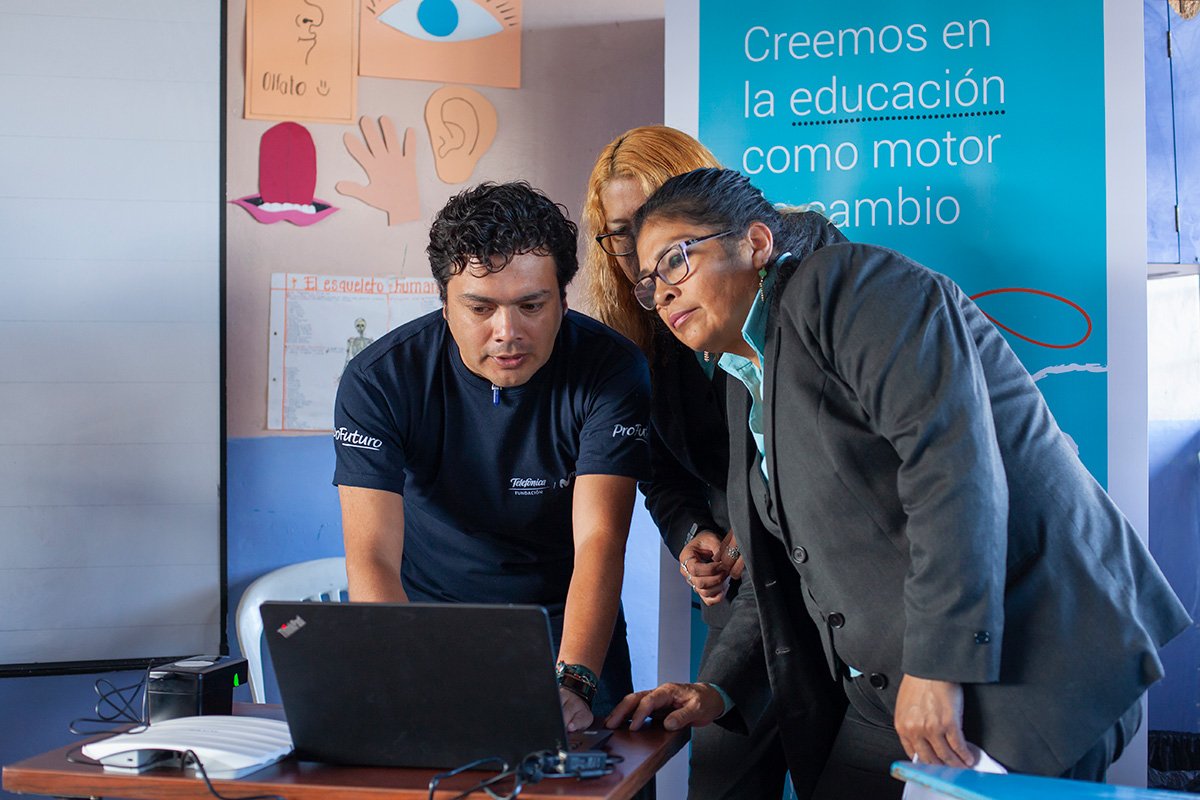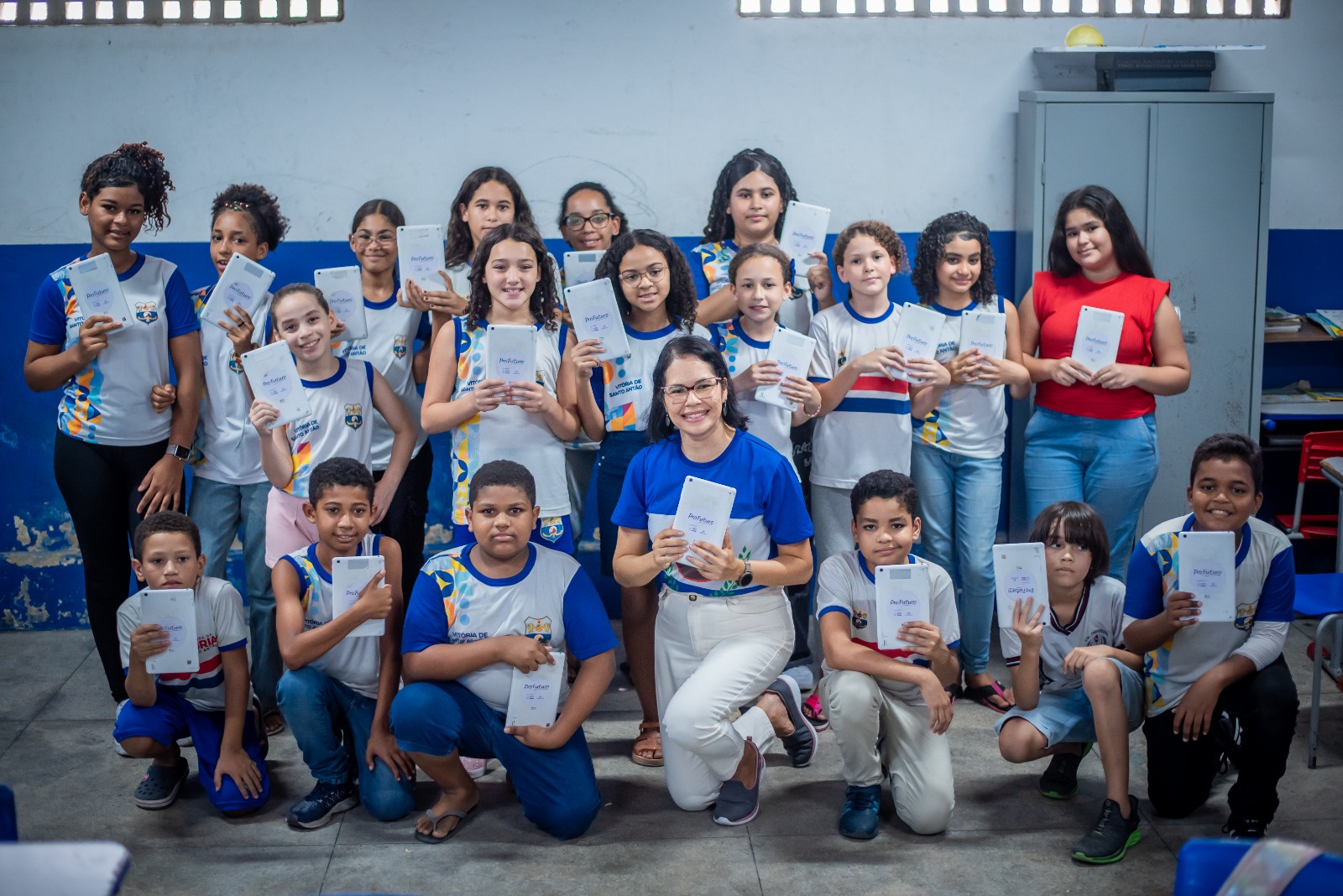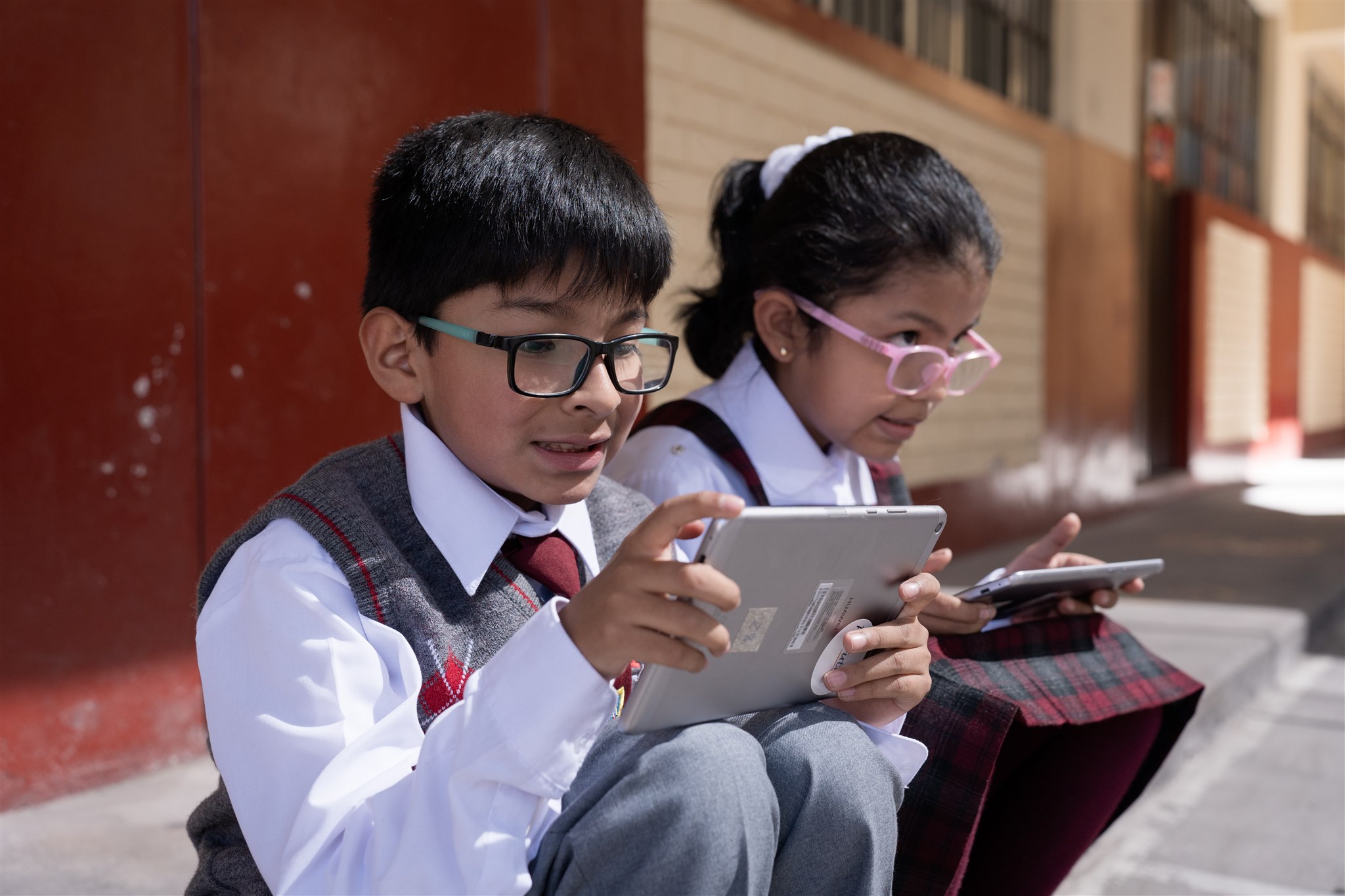Within the framework of ProFuturo’s strategic objectives, evaluating digital skills and their pedagogical appropriation by teachers is fundamental to training educators capable of transforming the pedagogical skills that underpin the high-quality education that will overcome the challenges of the digital era.
In teacher training, self-assessment plays a key role: in order to improve their skills and transform their teaching experience on an ongoing basis, teachers need to become aware of their strengths and, above all, of their areas for improvement.
To contribute to this, ProFuturo has adapted and incorporated into its catalogue a tool created in 2017 by the Brazilian Innovation Centre for Education (CIEB), whose main features are described below.
A simple, agile tool
The Digital Skills Self-Assessment is a free, multilingual online tool (available in English, French, Portuguese and Spanish) that allows teachers to identify the level of their digital skills. How? Through a simple questionnaire, which takes no more than 30 minutes to complete, and which returns a complete personalised report on the results, showing the teacher’s profile over five levels of appropriation (exposure, familiarisation, adaptation, integration and transformation) for each of the skills assessed.
The report, another of the great values that stand out about the tool, not only presents the outcome of the self-assessment, but it also provides recommendations and suggestions for resources in those aspects that can be improved through further training.

What skills does the tool assess?
The Digital Skills Self-Assessment is composed of 23 questions distributed in three areas: pedagogy, digital citizenship and professional development. Twelve skills are assessed in all, four in each area.
Thus, the pedagogical area assesses 1) pedagogical skills, 2) personalisation of learning, 3) evaluation and 4) planning and creation; the area of digital citizenship assesses 5) the responsible use of digital technologies, 6) critical use, 7) secure use and 8) inclusion; finally, the area of professional development assesses 9) self-evaluation, 10) self-development, 11) communication and 12) ability to share knowledge, content and resources.
In addition to encouraging teachers to reflect on their own knowledge and use of digital technologies, the tool allows educational organisations, institutions and education networks to obtain a ‘snapshot’ of their teachers’ aggregate digital skills profile. In other words, what the status of their digital skills training is. In this way, more effective training policies can be planned and developed.
It is widely acknowledged that teachers have a central role to play in innovation in education. This is also true that teacher training is a key issue when proposing changes in education. This tool aims to contribute to unravelling the ways and means to make this essential training effective in order to face the challenges of teaching and learning in the digital era.





